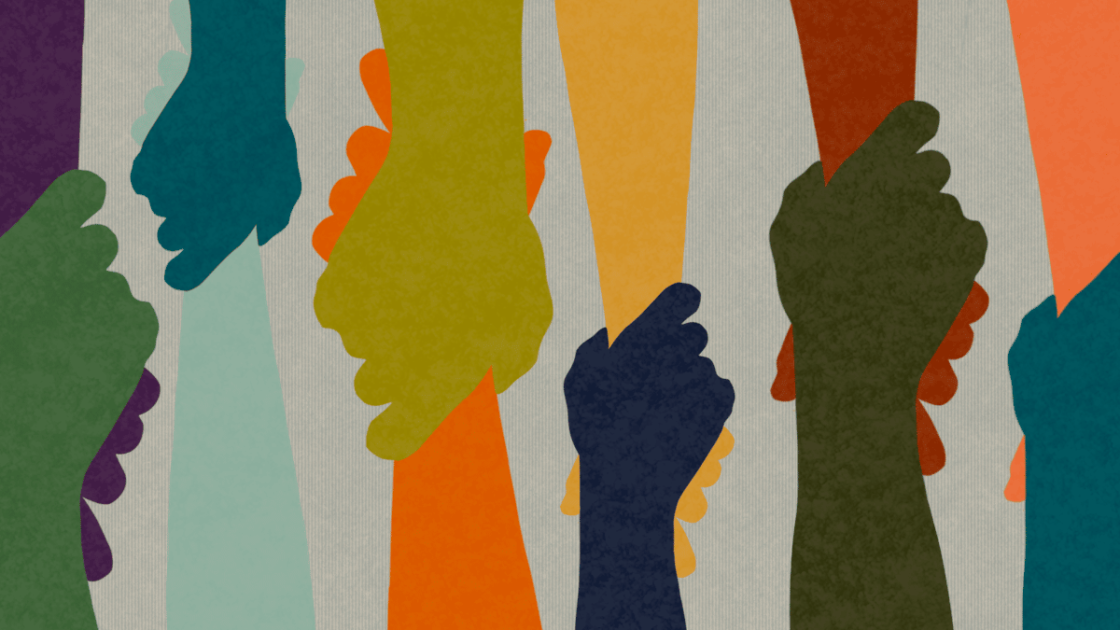What people get wrong about eating disorders
Eating disorders are often misunderstood. Challenging the misconceptions surrounding eating disorders can help improve the lives of people living with these conditions.

Eating disorders are complex mental health conditions that have a widespread impact on thoughts, feelings and behaviours, and cause serious and potentially life-threatening changes to eating habits, physical and psychological health, and quality of life.
Awareness of eating disorders is growing, but these conditions are still often misunderstood. These misconceptions have real consequences for people living with these conditions, leading to fewer diagnoses, treatment options, and pathways to support. Research has found that more than 1 in 20 people in Ireland will develop an eating disorder at some point in their lives, and in most cases, their symptoms will emerge before the age of 25.
Taking the time to learn more about eating disorders and challenging the misconceptions surrounding these conditions will help you to be a better source of support if someone in your life experiences an eating disorder. Here are 6 common things that people get wrong about eating disorders.
Understanding eating disorders
Eating disorders do not only affect young women
It is a common misconception that eating disorders only affect young white women. This false belief has, in part, been shaped by how eating disorders are usually portrayed in media. In reality, anyone can develop an eating disorder. Eating disorders affect people of any gender, age, sexual orientation or ethnicity.
These misconceptions about who eating disorders affect make it more difficult for people who don’t fit the stereotype to get the help they need. They can also make it harder for some people to realise that what they are experiencing is an eating disorder because they don’t think these conditions can affect them. This can lead to feelings of confusion, guilt and shame that act as barriers to reaching out for support.
You don’t have to be underweight to have an eating disorder
Despite what many believe, most people with an eating disorder are not underweight. While significant weight loss is often a symptom of anorexia, many people experiencing eating disorders don’t lose weight and some may gain weight. This false belief is reinforced by a lack of awareness and understanding of eating disorders in society and by how people with eating disorders are often portrayed in tv and film.
This misconception is damaging for many people living with eating disorders because it implies that someone can ‘look like’ they have an eating disorder, when this really isn’t the case.
This misconception leads to people who aren’t underweight, but who are still living with eating disorders, being invalidated and taken less seriously. It can also make it harder for people in these situations to reach out for help and support because they are afraid of other people’s reactions or because they don’t believe they are ‘sick enough’ to deserve treatment. You usually can’t tell whether someone has an eating disorder just by looking at them.
Eating disorders are not a choice
It is a damaging misconception that people who engage in eating disorder behaviours are simply choosing to do so of their own free will. This belief serves to blame the person with the eating disorder for what they’re experiencing. It also encourages people to show less empathy and compassion towards people living with eating disorders.
Many of the behaviours associated with eating disorders are driven by compulsions, meaning the person is experiencing powerful and distressing thoughts and feelings that are driving their actions. They will often feel like they are not fully in control of or feel unable to resist the compulsive thoughts. It’s not accurate to say that they are making a free and conscious choice. Nobody ‘chooses’ to have an eating disorder, just like nobody ‘chooses’ to have any health condition.
Eating disorders are serious conditions
People may view eating disorders as being ‘less serious’ than other mental health conditions. This is not the case. Eating disorders are complex conditions that have a significant and potentially life-threatening impact on people’s health, wellbeing and functioning.
Anorexia has the highest mortality rate of any mental health condition. There are complicated reasons why people may think eating disorders aren’t a big deal. Some of these reasons are tied to toxic attitudes in our society relating to how our bodies should look. Taking part in restrictive diets to change how your body looks is often normalised and even encouraged in society, especially for women and girls. This means that some disordered eating habits can sometimes go unnoticed because diet culture can make these habits feel normal.
Eating disorders are about more than body image
Being worried about calories or body size are common symptoms of eating disorders, but not everyone who experiences eating disorders has issues with their body image. Eating disorders can seem like they’re all about food and body size on the surface, but the root causes are usually linked to how the person feels about themselves and what they’re going through in their lives.
Mental health difficulties like anxiety and low self-esteem, a family history of eating disorders, addiction, or traumatic experiences like sexual abuse are all associated with developing an eating disorder.
To better understand how an eating disorder affects a person, it can be helpful to think of it as a coping mechanism that can be hard to let go of. An eating disorder causes a person to control food and their body to manage distress, numb out difficult feelings and feel in control when something else in their life is making them feel out of control or unsafe.
You can recover from an eating disorder
People can and do fully recover from eating disorders when they get the right help, support, and care that they need. No matter how hard it may seem, it is always possible to make a recovery. Recovery is often not linear. It can be one step forward and one step back sometimes, and what recovery means for one person might be different to what it means for someone else.
Everyone’s recovery journey is different and it may take time, but recovery is always possible, at any stage. Trying to recover from an eating disorder by yourself can be really isolating and hard.
Reaching out for support from professionals, family, and friends can make all the difference and help to get you through. If your eating habits are beginning to worry you, talking to your GP or calling the Bodywhys helpline is a great first step.
Learn more about eating disorders
Here are some articles you can read to learn more about the different types of eating disorders, what causes eating disorders, how they can affect people, and the treatments available.
- What is an eating disorder?
- Anorexia: The signs, symptoms and treatment
- Bulimia: The signs, symptoms and treatment
- Binge eating disorder: The signs, symptoms and treatment
- OSFED: The signs, symptoms and treatment
Feeling overwhelmed and want to talk to someone?
- Get anonymous support 24/7 with our text message support service
- Connect with a trained volunteer who will listen to you, and help you to move forward feeling better
- Whatsapp us now or free-text SPUNOUT to 50808 to begin.
- Find out more about our text message support service
If you are a customer of the 48 or An Post network or cannot get through using the ‘50808’ short code please text HELLO to 086 1800 280 (standard message rates may apply). Some smaller networks do not support short codes like ‘50808’.






